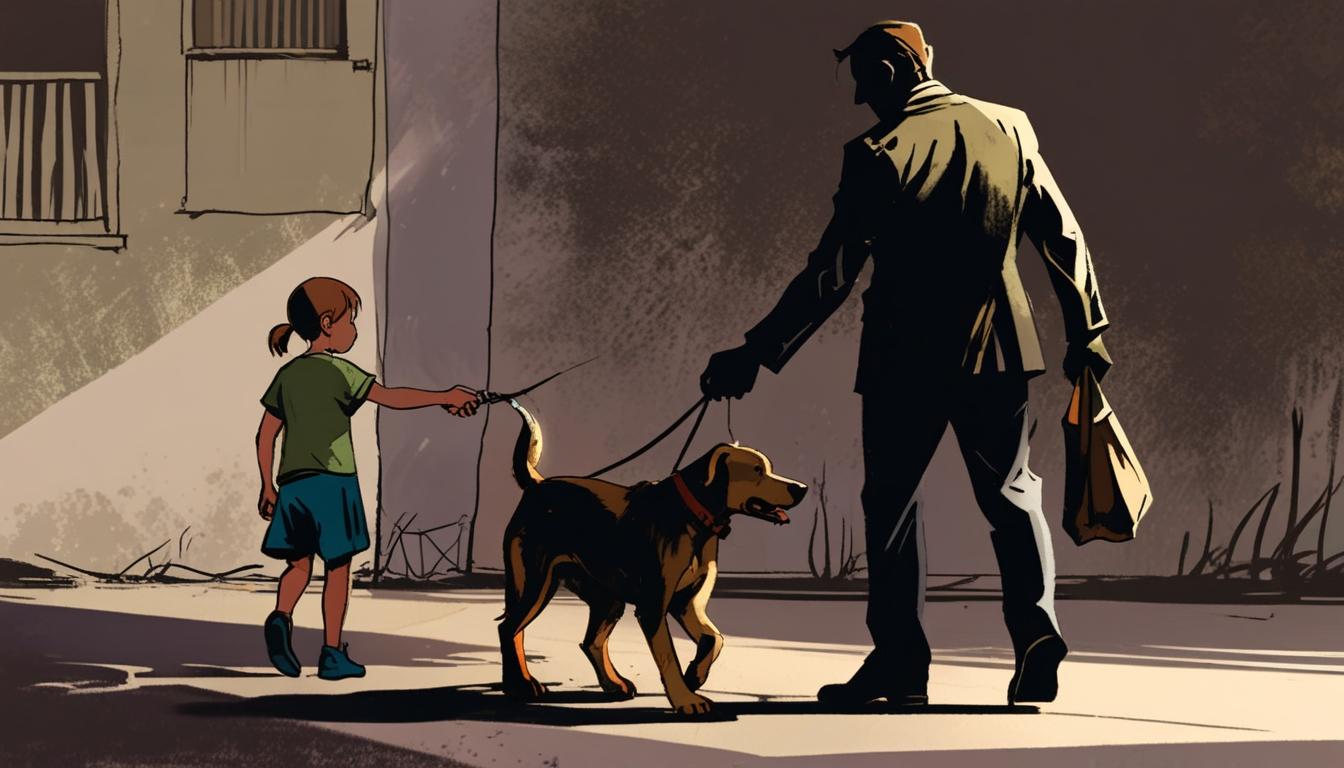As organised dog fighting incidents soar, families are warned against privately rehoming pets, risking their safety in a brutal underground world.
Families across the UK are being alerted to the severe dangers of privately rehoming their pets amidst troubling reports of organised dog fighting and baiting practices. The RSPCA has reported a dramatic surge in incidents related to these brutal activities, with an alarming increase in dog fighting complaints rising from 399 in 2020 to 537 in 2023, marking a year-on-year rise of 8%.
This disturbing phenomenon involves the use of dogs in barbaric fights for the entertainment of spectators and monetary gain. Within the circles of illegal dog fighting, breeds such as the American Pitbull and the Japanese Tosa are often exploited, trained to be aggressive and formidable against one another. Some dogs are reportedly valued at up to £50,000, with owners using rudimentary veterinary methods to patch them up after fights, often without humane pain relief.
In addition to direct fighting, the horrible practice of dog baiting is becoming increasingly prevalent. Weaker breeds, sometimes sourced from unsuspecting families who believe they are handing their pets to good homes, are frequently used as bait in these fights. Karen Taylor, a seasoned animal rescue worker and co-founder of the rescue centre Animal Alliance, spoke to the ECHO about the situation, saying, “Dog-baiting is rife at the moment. People are making a full-time business out of it. They’re sourcing free dogs online and selling them for around £300 for the dog to be ripped to pieces by fighting dogs.”
Taylor elaborated on how manipulative individuals pose as prospective adopters, bringing families to create a false sense of security around the sale. “The sellers think their dogs are going to great homes, and they’re not; they’re facing a really gruesome end to their lives,” she noted. The sheer volume of dogs being abandoned or advertised for rehoming for free exacerbates the crisis, leaving many rescues overwhelmed and unable to accommodate the increasing number of animals in need.
The RSPCA has stated that its reports of organised dog fighting totalled 1,734 incidents in England from 2020 to 2023, alongside 97 reports in Wales during the same timeframe. Despite the alarming statistics, the conversion of these reports into prosecutions remains low due to the clandestine nature of these operations.
Chief Inspector Ian Briggs of the RSPCA’s Special Operations Unit described dog fighting as a “draconian and barbaric blood sport”, affirming that it involves sophisticated networks who engage in breeding and training dogs for fighting. He expressed concern over the harrowing fate that befalls many dogs, stating, “Dogs who refuse to fight or lose in the pit are abandoned. Injured and dying dogs can be electrocuted to death or even drowned in bathtubs before their bodies are burned to ash.”
As awareness of these issues continues to spread, many animal welfare organisations, including Animal Alliance, are undertaking fundraising efforts to support rescue operations for dogs at risk of being caught in this violent world. Taylor mentioned that among their initiatives are a variety of personal challenges undertaken by volunteers, including fundraising through sponsorships for events like a marathon and extreme physical transformations.
The fight against organized dog fighting and its associated practices represents a significant challenge for both animal welfare organisations and law enforcement agencies, and the call for vigilance from the public remains critical in addressing this grave issue.
Source: Noah Wire Services
- https://www.companionlife.co.uk/dog-fighting-reports-continue-to-rise/ – This article supports the claim that dog fighting reports have surged, with a 35% increase over four years. It highlights the clandestine nature of these activities and provides details on RSPCA’s efforts to combat the issue.
- https://www.dogster.com/statistics/dog-fighting-statistics-uk – This source provides statistics on dog fighting in the UK, including a significant rise in dog fighting cases since 2020 and the prevalence of dog fighting incidents across England and Wales.
- https://articles.hepper.com/dog-fighting-statistics-uk/ – This article details various statistics on dog fighting, including the types of breeds involved, the financial aspects of the industry, and the tragic fate of dogs used in these activities.
- https://www.rspca.org.uk/whatwedo/enddogfighting/campaigns – This RSPCA webpage provides information on their efforts to end dog fighting, including campaigns and legal actions against perpetrators, supporting the narrative of the need for increased vigilance and action.
- https://www.gov.uk/animal-welfare/animal-cruelty – This government website outlines the legal framework against animal cruelty, including laws and penalties that apply to dog fighting and baiting in the UK, reflecting the severity with which these crimes are treated.
Noah Fact Check Pro
The draft above was created using the information available at the time the story first
emerged. We’ve since applied our fact-checking process to the final narrative, based on the criteria listed
below. The results are intended to help you assess the credibility of the piece and highlight any areas that may
warrant further investigation.
Freshness check
Score:
8
Notes:
The article contains recent data points (2020-2023) and mentions ongoing practices, suggesting it is relatively fresh. However, similar concerns have been reported previously without specific dates, which might indicate recycled news.
Quotes check
Score:
6
Notes:
The quotes from Karen Taylor and Chief Inspector Ian Briggs appear to be original, but no specific earlier references were found online. This could suggest they are new quotes, but without further context, it’s hard to confirm.
Source reliability
Score:
9
Notes:
The narrative originates from the Liverpool Echo, which is a reputable local news source in the UK. The information is also verified by quotes from officials like Chief Inspector Ian Briggs and Karen Taylor, adding to its credibility.
Plausability check
Score:
8
Notes:
The claims regarding dog fighting and baiting practices are consistent with known issues in the UK, and the statistics provided align with plausible scenarios. However, some details are horrific and could be exaggerated, but there is a basis for these claims.
Overall assessment
Verdict (FAIL, OPEN, PASS): PASS
Confidence (LOW, MEDIUM, HIGH): MEDIUM
Summary:
The narrative is generally plausible and comes from a reliable source. The freshness of the content is moderate due to the presence of recent statistics and ongoing issues. While some details might be disturbing, they are consistent with known concerns about dog fighting in the UK.













